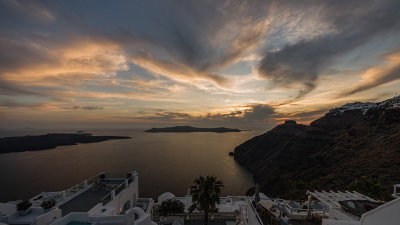Bare in mind that these have been uploaded as tiny files [as is my usual practise] and should be viewed at original size.
That's my pickup truck in pitch darkness in the third image and the first two were taken with the camera resting on the side of the truck bed and using the two second shutter delay on the Panasonic G6 camera. So not the newest and 'best' camera for the job but it shows what current Micro 4/3 cameras are capable of.
Look at the exposure compensation I dialled in and the shutter speed, which the camera chose for itself.
straight out of camera jpeg with only adjustment to crop to 16:9 in post.
Straight out of camera jpeg
Pitch dark with camera resting on window ledge. Very long exposure.
Any of the current range of relatively small cameras from Olympus, Panasonic, Fuji and Sony are capable of this and more. It comes down to choosing the budget, the lens choice, and probably importantly, the form factor and size. All these brands give a choice.
Even though I have several other cameras with various features and sensor sizes, my favourite camera remains the older Panasonic G6 even though my G7 is more versatile in many ways. That's just a personal peccadillo, because the G7 is a better camera, my Olympus E-M10 smaller and very capable and much prettier and the little Fuji X20 very good indeed in so many ways.
Don't worry about any of these being too complex for a beginner. They are not. They can be used in a simple way but are also fully featured so that a beginner can grow into them as they gain confidence and skill if they wish to. A more basic camera is a limiter and is soon outgrown by a capable keen photographer. That's especially the case where video is concerned, along with high speed burst, automatic features like face priority and eye priority autofocus and many others.
There's no getting away from the fact that Panasonic and Sony are the champions when it comes to a combination of still and video, which is very much important in these digital days where both media are stored and viewed by the same equipment, and now can be shot by the same cameras with equal competence. Indeed many cameras can take still photographs even while continuing to shoot video seamlessly. This is a mainstream feature of these 'hybrid' cameras [like the G6 and G7 and many many more models] not something for experts or even requires any particular skill apart from a good eye for the shot.
Some people will no doubt recommend something basic and simple like an entry level DSLR. Some will point to something top of the range and big and heavy. I recommend any of the smaller form factor cameras from any of the big brands and can only give you my experience with fairly average interchangeable lens and reasonably advanced fixed lens cameras. I can only warn against cheap compact and 'travel zoom' cameras for her, because they are quite rubbish in low light.
Here's one I took on the same night as the harbour ones but earlier in much better light, using an iPhone 5S, which is admittedly marginally worse performing than a premium travel zoom but around similar to a budget compact [in low light]. I've exported this full size, because it is, frankly, rubbish. While the scene was darker than it looks, compare the day and date with the others above. Do not buy a budget compact or a travel zoom for her whatever you do.
Have a look at this full size and compare with a dedicated mid range camera above it.
Yes, there really is that much difference. More so in fact than you may see rendered on this medium as uploaded.
PS. Someone mentioned expensive lenses for low light photography. I don't agree. Although I used my go-to 14/140 zoom for the above images, it isn't a fast lens and if you look at the aperture settings [f-stop] they aren't anything special. Not sure why I used f8 in total darkness, but it is what it is and the exposure was a full 20 seconds.
Indeed the standard 14/42 kit lens commonly supplied with M4/3 cameras would have done exactly the same job. Yes, there are advantages to using brighter lenses, especially in combination with image stabilisation, but it is not essential if you understand that the camera needs to be kept still. Hand held, every little helps and technique is the most important.
Well within your budget
is this beauty .of a camera plus a 32gig u3 fast Sd card, carry bag plus a spare non-Panasonic battery. Leave extra lenses, in terms of fast primes and telephoto lenses for her or others to purchase as the lens provided is ideal for landscape and street photography.
Because she's worth it!







